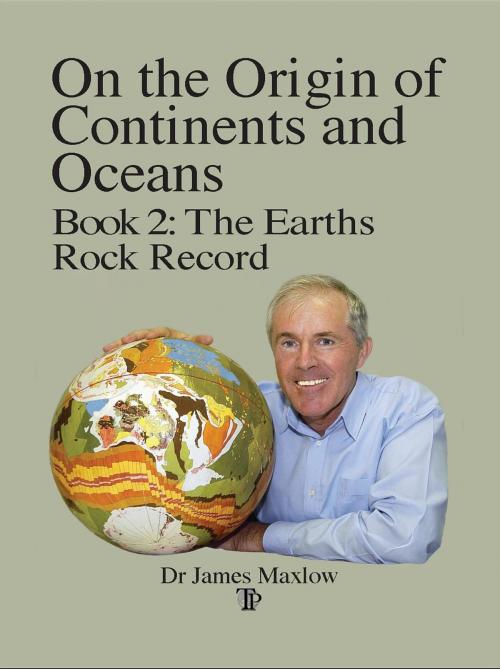On the Origin of Continents and Oceans: Book 2: The Earths Rock Record
Nonfiction, Science & Nature, Science, Earth Sciences, Geophysics, Geology, Geography| Author: | James Maxlow | ISBN: | 9780992565237 |
| Publisher: | Terrella Press | Publication: | January 1, 2015 |
| Imprint: | Terrella Press | Language: | English |
| Author: | James Maxlow |
| ISBN: | 9780992565237 |
| Publisher: | Terrella Press |
| Publication: | January 1, 2015 |
| Imprint: | Terrella Press |
| Language: | English |
ON THE ORIGIN OF CONTINENTS AND OCEANS is a completely new way of looking at and understanding modern scientific evidence about the origin of Earth's continents and oceans. Since the 1960s this evidence has traditionally been gathered in support of Plate Tectonic studies and as such, until now, has rarely been looked at other than from a conventional Plate Tectonic perspective. This conventional perspective insists that the origin of the continents and oceans is a random, non-predictable, and sometimes catastrophic process-a process that is understood by very few and remains unchallenged by most. In this book two of a two book series, small Earth models created and discussed in book one, extending from the early-Archaean to 5 million years into the future, are used as a basis to plot various modern global geological, geographical, biogeographic, geodetic, and geophysical datasets. The location of each ancient magnetic pole, for instance, is shown to remain diametrically opposed throughout Earth history, as it is today, and these poles are precisely located on all constructed models of the ancient Earth. Each established pole and derived equator is shown to coincide precisely with observed ancient climate zones and ancient geographical evidence. Similarly, plant and animal species evolution, extinction, and migration is shown to be intimately related to progressive continental break-up, sea-level changes, and opening of the modern oceans, in particular during the past 250 million years. By adopting this new scientific perspective it is shown that global extinctions are not related to random catastrophic events-events we are led to believe predict a gloomy end to civilisation as we know it-but, more importantly, these events are shown to coincide with non-catastrophic, wholesale continental breakup as well as climate and sea-level changes that occur naturally over many millions of years. The observations and conclusions presented in this book one are based on factual evidence which shows that, unbeknown to most scientists today, we may have now reached a critical stage in the development of modern science. One seemingly trivial change in our scientific perspective of the way the Earth's continents and oceans have evolved and assembled has the potential to completely negate many of the established consensus of opinions and scientific beliefs existing today. This, in turn, represents a paradigm shift in our understanding of the origin of continents and oceans.
ON THE ORIGIN OF CONTINENTS AND OCEANS is a completely new way of looking at and understanding modern scientific evidence about the origin of Earth's continents and oceans. Since the 1960s this evidence has traditionally been gathered in support of Plate Tectonic studies and as such, until now, has rarely been looked at other than from a conventional Plate Tectonic perspective. This conventional perspective insists that the origin of the continents and oceans is a random, non-predictable, and sometimes catastrophic process-a process that is understood by very few and remains unchallenged by most. In this book two of a two book series, small Earth models created and discussed in book one, extending from the early-Archaean to 5 million years into the future, are used as a basis to plot various modern global geological, geographical, biogeographic, geodetic, and geophysical datasets. The location of each ancient magnetic pole, for instance, is shown to remain diametrically opposed throughout Earth history, as it is today, and these poles are precisely located on all constructed models of the ancient Earth. Each established pole and derived equator is shown to coincide precisely with observed ancient climate zones and ancient geographical evidence. Similarly, plant and animal species evolution, extinction, and migration is shown to be intimately related to progressive continental break-up, sea-level changes, and opening of the modern oceans, in particular during the past 250 million years. By adopting this new scientific perspective it is shown that global extinctions are not related to random catastrophic events-events we are led to believe predict a gloomy end to civilisation as we know it-but, more importantly, these events are shown to coincide with non-catastrophic, wholesale continental breakup as well as climate and sea-level changes that occur naturally over many millions of years. The observations and conclusions presented in this book one are based on factual evidence which shows that, unbeknown to most scientists today, we may have now reached a critical stage in the development of modern science. One seemingly trivial change in our scientific perspective of the way the Earth's continents and oceans have evolved and assembled has the potential to completely negate many of the established consensus of opinions and scientific beliefs existing today. This, in turn, represents a paradigm shift in our understanding of the origin of continents and oceans.















